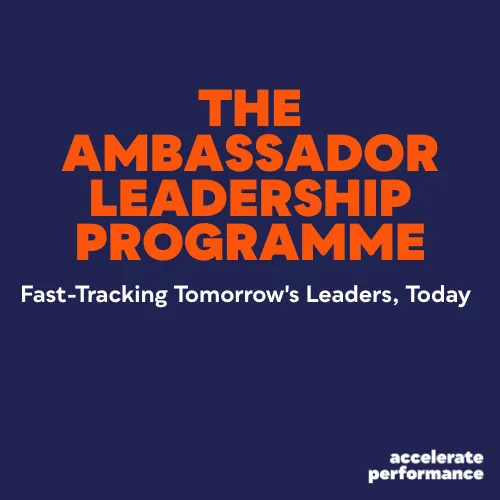We’ve Got You Covered

Lead Generation
Social media Ads, Google ads or totally free lead gen strategies; we have the tried & proven know-how to get you qualified leads that convert.

Social Media Management
Managing your socials doesn't have to be overwhelming. Save time on scheduling content and responding to comments and messages.

Content Creation
Whether you need blog posts, website copy, or social media updates, we can help you stand out from the pack and attract more customers.

Sales Funnels
We specialise in creating a custom funnels that fits your unique needs and helps you convert more leads into customers.

Reputation Management
With our Review Request System™, we can help you build a positive online presence and ensure that your customers see you as the best option.

SMS Marketing
Incredibly effective way to reach new customers, increase loyalty among current customers, and drive more sales at low cost. When done right.

Website Development
We'll work with you to create a website that reflects your unique brand and that will help you stand out from the competition.

Email Marketing
We'll help you create eye-catching emails that will grab your readers' attention, and turn it into action in form of more replies and sales.
The Ambassador Leadership Programme
Fast-Tracking Tomorrow's Leaders, Today
Why Choose The Ambassador Leadership Programme?
Every organisation faces the same critical question:
“Do we have the right leaders ready to step up when we need them?”
The truth is, most businesses don’t.
High-potential employees often leave before being stretched.
Succession pipelines are fragile or underdeveloped.
Competency gaps appear suddenly when leaders exit.
The cost of getting this wrong is enormous: disrupted operations, loss of knowledge, weakened culture, missed opportunities.
The Ambassador Leadership Programme is your answer. It derisks succession planning by equipping your best people, who already know your business inside out, with the leadership skills, confidence, and cross-functional competence to step into senior roles immediately.

The Business Benefits
✅ De-risk Succession Planning
- Build a ready-now pool of leaders who understand your business.
- Avoid the high cost and time delay of external hires.
- Ensure smooth leadership transitions without losing momentum.
✅ Eliminate Competency Gaps
- Fast-track high potentials with targeted training in strategy, change leadership, influence, and executive presence.
- Close the gap between “technical expertise” and “leadership capability.”
✅ Improve Retention & Commitment
- Invest in your best people — they’ll see a future in your business, not elsewhere.
- Show a visible pathway to senior leadership that inspires loyalty and discretionary effort.
✅ Strengthen Culture & Brand Value
- Ambassadors become visible role models across the organisation.
- Builds a leadership culture that cascades through teams, shaping a stronger employer brand.
✅ Drive Productivity & Savings
- Each delegate runs a real-world strategic project during the programme.
- These projects deliver measurable ROI: cost savings, efficiency gains, revenue growth, innovation.
- The business benefits while they learn.
The Return on Investment Case
✅ Time Commitment:
- 2 face-to-face days per month (immersive, high-impact)
- 1 virtual peer session per week (60–90 mins)
- On-the-job projects integrated into existing roles
✅ Cost of Procurement:
- Fraction of the cost of external recruitment or executive search fees
- Lower risk compared to hiring untested external leaders
✅ Return on Investment:
- Reduced leadership gaps = continuity and stability
- Retention of high performers (avoiding replacement costs 1.5–2x salary)
- Measurable business impact from projects (efficiency, savings, innovation)
- Culture shift that multiplies productivity across teams
Put simply: the cost is small, the ROI is massive.
Ambassador Leadership Programme
Programme Highlights
6 months, part-time: designed to fit alongside full-time roles.
Blended learning: monthly face-to-face intensives, weekly virtual peer sessions.
Real impact: each delegate delivers a live project that saves money or grows the business.
Executive visibility: Ambassadors present to senior leaders, strengthening internal networks.
Succession-ready graduates: by the end, you have confident leaders who can step up.
What This Means for Your Business
For the People & Culture Lead:
- A clear, structured pipeline of leaders.
- Improved engagement and retention.
- Demonstrable alignment with talent strategy.
For the C-Suite:
- Confidence that the next generation of leaders is ready now.
- Reduced risk, higher stability, stronger performance.
- ROI through real projects that move the business forward.
Note: The Ambassador Leadership Programme will be fully tailored to your organisation and the participating cohort.

The Psychology of Excellent Leadership | How Coaching Accelerates Performance
Most executives learn tactics. Few master influence. The difference matters more than you think.
Executives who can execute flawlessly may still struggle to inspire their teams. Leaders who understand strategy can't get buy-in for change. The gap between operational competence and transformational leadership isn't about intelligence or experience.
It's about psychology.
Executive coaching delivers measurable results. The research confirms it: organisations see a 788% return on investment, with 70% increases in individual performance and 48% improvements at the organisational level. These numbers tell us coaching works.
But they don't tell us why some leaders transcend tactical effectiveness, while others plateau.
The Tactical Ceiling
Traditional coaching approaches focus on skills development. Time management. Communication frameworks. Strategic planning processes. These matter, and they produce results.
They also have a ceiling.
Tactical skills help leaders execute. They improve efficiency, clarify decision-making, and strengthen operational capabilities. But execution alone doesn't inspire commitment. It doesn't transform organisational culture or unlock discretionary effort from teams.
McKinsey's research reveals something crucial about this limitation. Hard leadership approaches like command-and-control, coalition-building, or legitimating tactics create high levels of compliance. But they generate little to no genuine commitment to action and change.
Compliance gets tasks done. Commitment transforms organisations.
The distinction matters because today's leadership environment demands more than operational excellence. Flatter hierarchies, distributed teams, and collaborative work structures mean leaders can't rely on positional authority. They need influence.
The Psychology Layer
Persuasion psychology provides what tactical coaching misses. It explains how humans actually make decisions, form commitments, and change behaviour. These aren't abstract theories. They're evidence-based principles backed by decades of research.
Dr. Robert Cialdini's work identified six universal principles of persuasion: reciprocity, commitment and consistency, social proof, authority, liking, and scarcity. His research spans 35 years of peer-reviewed scientific study. Harvard now offers dedicated programmes on influence and persuasion in leadership, recognising these principles as essential to leadership effectiveness.
These principles operate whether leaders understand them or not. The question is whether they're applied consciously and ethically.
When integrated into executive coaching, persuasion psychology shifts the focus from what leaders do to how they create commitment. It moves beyond task completion to genuine engagement. Instead of securing compliance through authority, leaders learn to inspire action through understanding human motivation.
This represents a fundamental shift in leadership capability.
From Compliance To Commitment
The difference plays out in daily leadership moments. A leader using tactical approaches might communicate a strategic initiative clearly, outline expectations precisely, and follow up consistently. They'll likely see adequate execution.
A leader applying persuasion psychology approaches the same initiative differently. They understand reciprocity, so they invest in the relationship before asking for commitment. They leverage social proof by highlighting early adopters within the team. They build consistency by connecting the initiative to values the team already holds.
The tactical leader gets compliance. The psychologically-informed leader generates commitment.
Research on transformational leadership confirms this distinction. Studies tracking organisational leaders before and after coaching found that leadership effectiveness increases specifically through authentic and change-oriented behaviours. On days when leaders used transformational approaches like intellectual stimulation and individual consideration, followers were more likely to use their strengths and take initiative.
That initiative predicted next-day work engagement and performance.
The multiplier effect becomes clear. Tactical leadership produces linear results. Transformational leadership, grounded in persuasion psychology, creates exponential impact through engaged teams who drive performance independently.
The Real-World Application
Integrating persuasion psychology into executive coaching requires more than theoretical knowledge. It demands practical application grounded in real organisational contexts. This is where many coaching approaches fall short.
Understanding Cialdini's principles intellectually doesn't translate automatically into leadership behaviour. Leaders need to practise applying these principles to actual challenges they face. They need feedback on how their influence attempts land with their teams. They need to develop the judgement to know which principles apply in which contexts.
This is where coaching that combines psychological expertise with genuine executive experience becomes valuable. Theory alone produces surface understanding. Real-world application develops mastery.
The coaching process becomes investigative. Rather than prescribing communication templates or leadership frameworks, it explores how psychological principles operate in the leader's specific context. How does reciprocity function in their organisational culture? What forms of social proof carry weight with their particular team? How can they build authentic authority rather than relying on positional power?
These questions don't have generic answers. They require personalised exploration grounded in both psychological understanding and practical business experience.
The Transformation Threshold
The shift from tactical to transformational leadership represents a threshold, not a continuum. Leaders don't gradually become more influential by accumulating tactical skills. They cross into transformational territory when they understand and apply the psychological principles that drive human commitment.
This threshold explains why some executives with modest tactical skills generate extraordinary results whilst others with impressive capabilities struggle to inspire their teams. The difference isn't competence. It's psychological sophistication.
Organisations investing in leadership development need to recognise this distinction. Training programmes that focus exclusively on tactical skills will produce tactically proficient leaders. They won't produce transformational ones.
Executive coaching that integrates persuasion psychology addresses this gap. It doesn't abandon tactical development. It builds psychological capability on top of operational competence, creating leaders who can both execute effectively and inspire genuine commitment.
The ROI data supports this layered approach. Organisations offering training alone see 22% productivity increases. When combined with coaching, that figure rises to 88%. The fourfold improvement suggests coaching adds something qualitatively different from tactical skill development.
That something is psychological depth.
The Leadership Organisations Actually Need
Modern organisations face challenges that tactical leadership alone can't address. Rapid change, distributed authority, and collaborative structures demand leaders who can influence without relying on hierarchical power. They need executives who generate commitment rather than extracting compliance.
Persuasion psychology provides the framework for developing these leaders. When integrated into executive coaching, it transforms leadership development from tactical skill-building into genuine capability enhancement.
The distinction between tactical and transformational leadership isn't semantic. It represents fundamentally different approaches to human influence. One secures adequate performance through authority and process. The other unlocks discretionary effort through psychological understanding and authentic engagement.
Which leaders does your organisation need?
The answer determines whether your coaching investment produces tactically competent executives or transformational leaders who accelerate organisational performance beyond what operational excellence alone can achieve.
Let our happy customers tell their story
We think our courses and coaching are great, but our customers should have the last word. Here is a selection of endorsements.

Accelerating Your Performance Every Day
Accelerate Performance is on a mission to enable people and business to achieve great things through Advisory, Coaching, Consulting, Executive Leadership Development, and Training. .
@ Copyright 2025 - Accelerate Performance
Made with ♥ In London, GB
